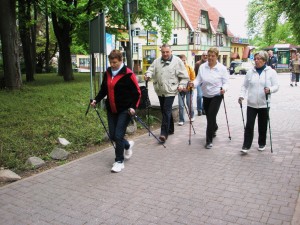
‘It’s fantastic news! Most people in their sixties will not be old in the conventional sense any more.’ Ross Altmann, a Government adviser on older people was commenting on the findings in a new report by the International Longevity Centre, which show that serious illness is sparing the sixty-year olds and striking people much later in life.
The 60 to 64 age bracket had been the ages that saw the highest number of people diagnosed with serious illnesses. Now, the report shows, the numbers have fallen most in strokes and heart attacks probably because people have stopped smoking and are having better diets. And if the result of our studies are considered – by exercising.
If the change had not happened, the cohort going forward would have meant huge extra challenges for the NHS.
At the other end of the scale, although people in their 60s are no longer old and are enjoying a golden age of health, it’s not the case amongst the 80s and over. It’s a bleak picture for them, with serious illnesses ‘painting a bleak picture,’ according to the report.
But this is the generation that weren’t as educated about their health as the others. They had the stresses of the Great Depression, the Second World War, and the Suez crisis, to mention a few. The dangers of smoking weren’t discovered until the 1940s and 1950s.

The findings now should encourage the 60-somethings to get in shape for the coming years. Anyone who doesn’t know what a healthy diet is must be living on a desert island. But the real miracle preventative is exercise, as the previous blog shows. If proof was needed, the conclusion of a 35 year long study in Caerphilly, showed that a good diet, staying socially connected and regular exercise seriously delayed the onset of cardiovascular disease dementia.














